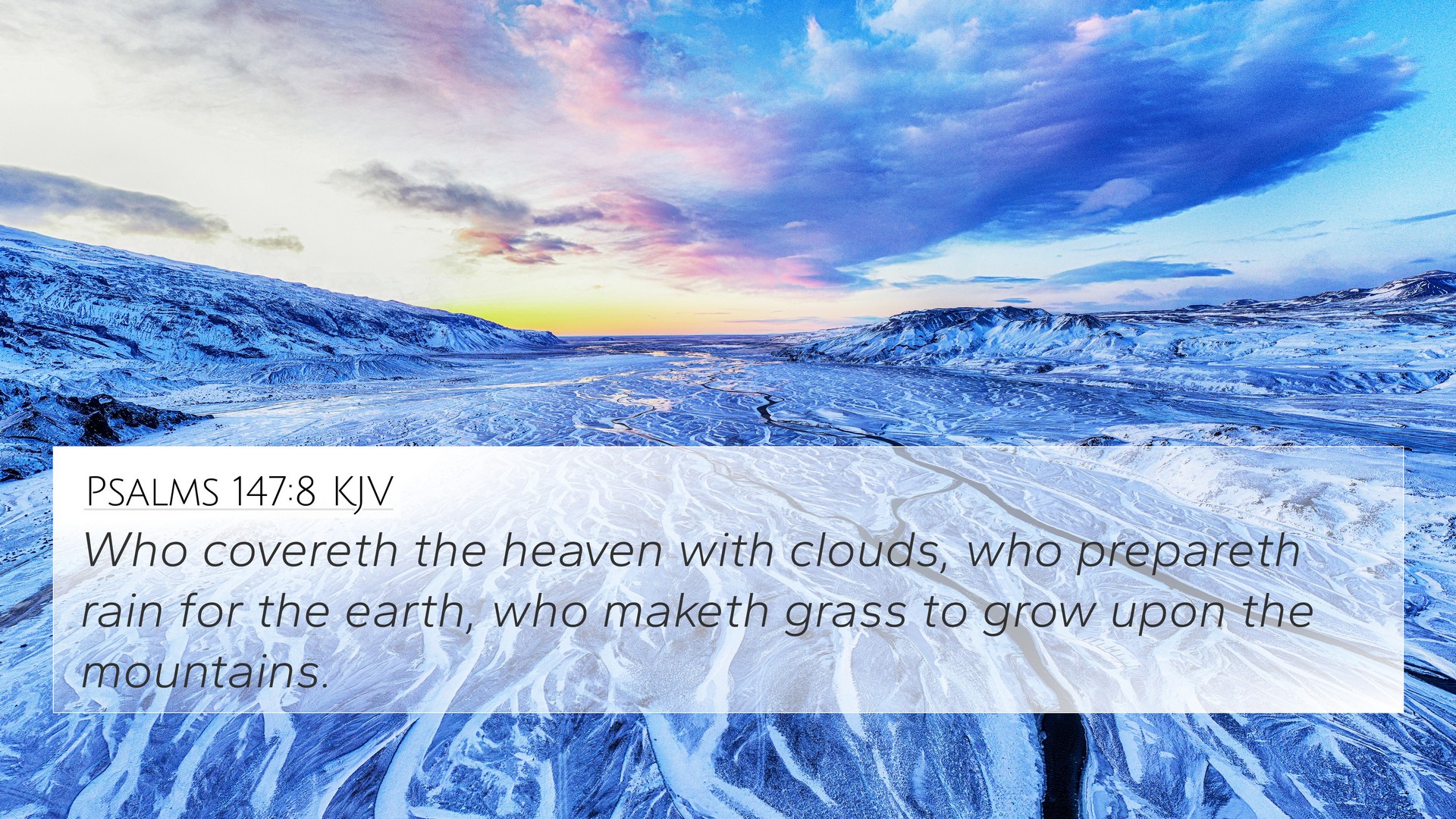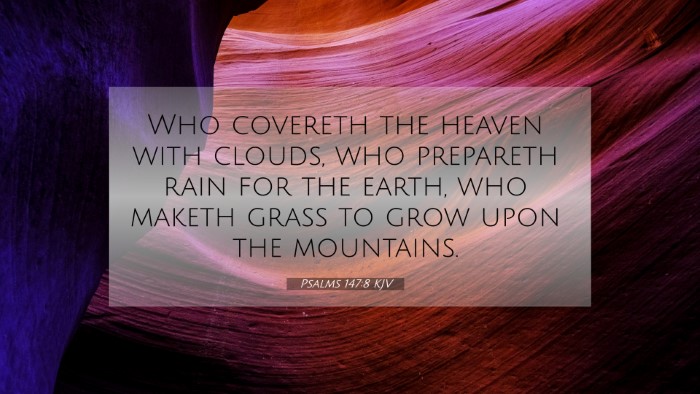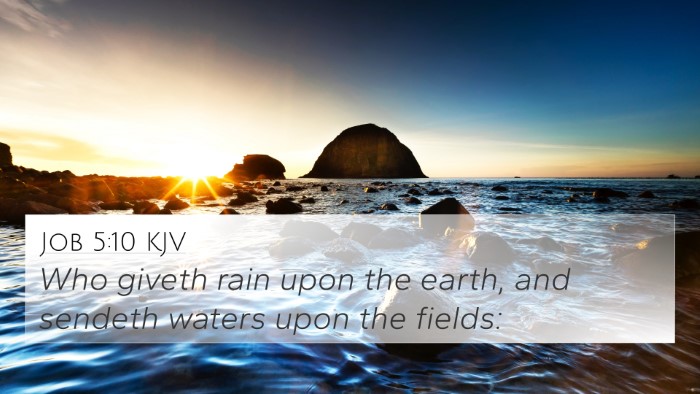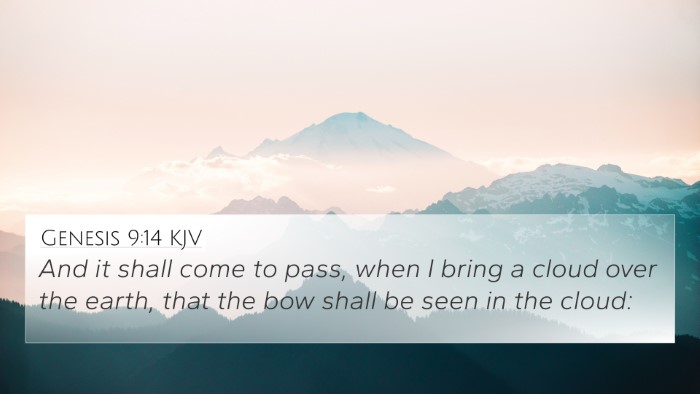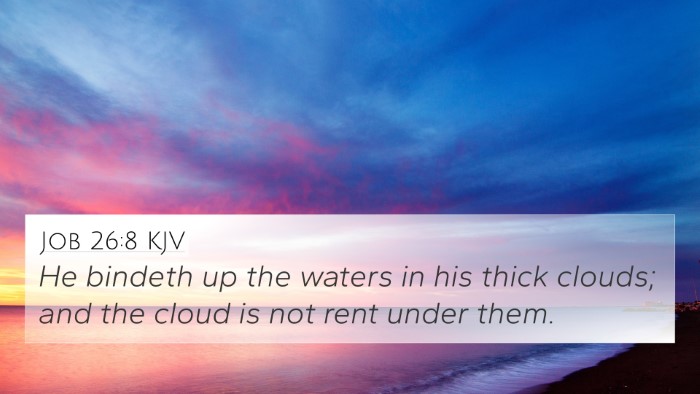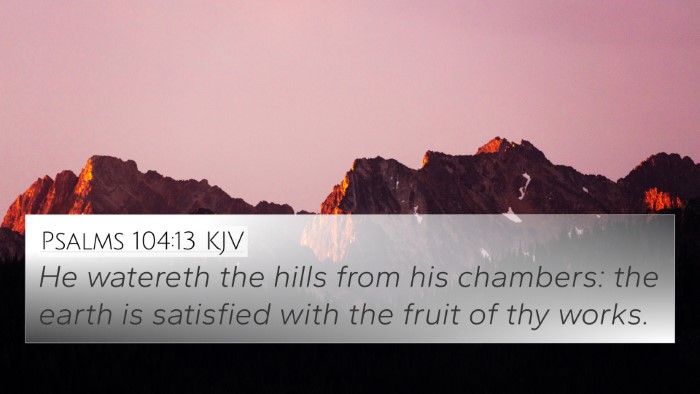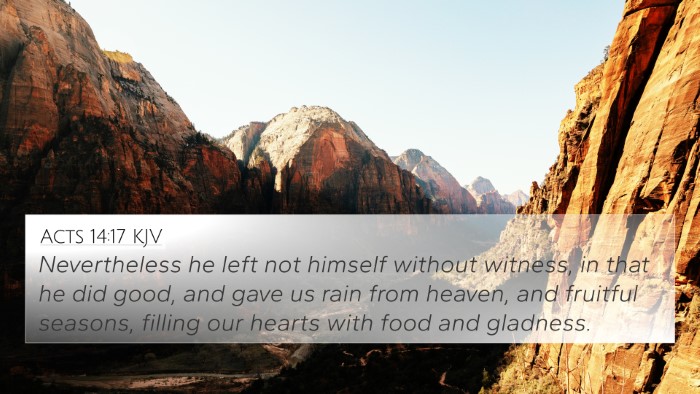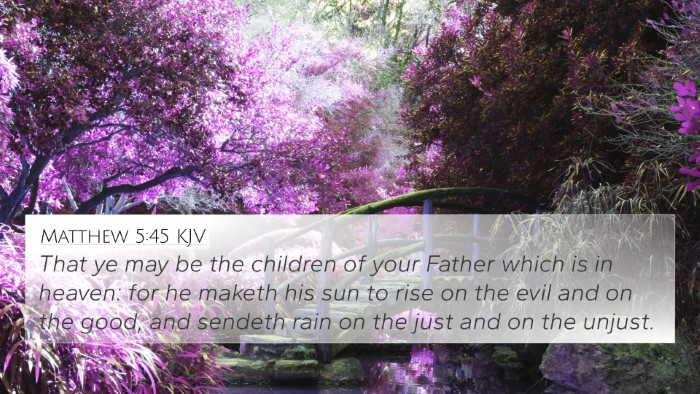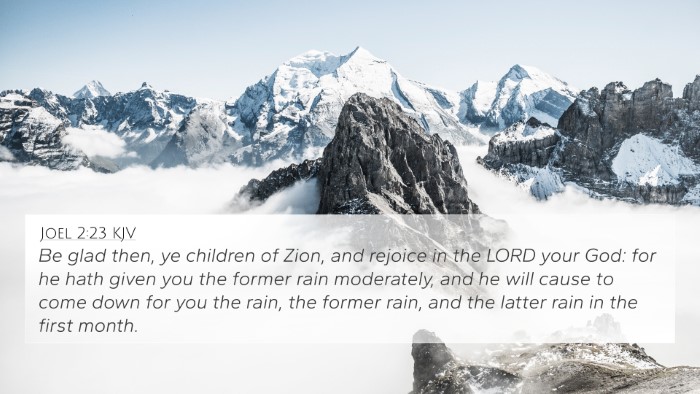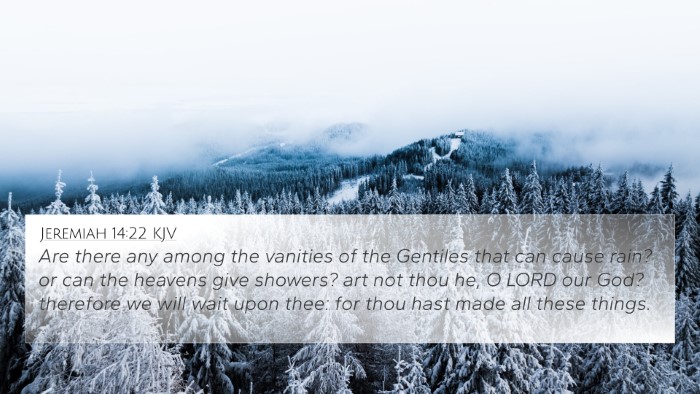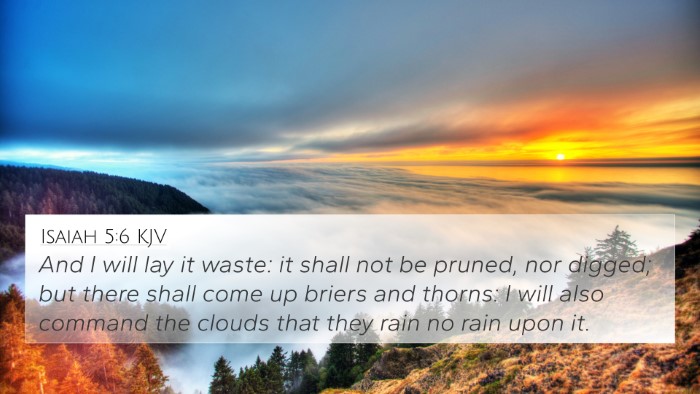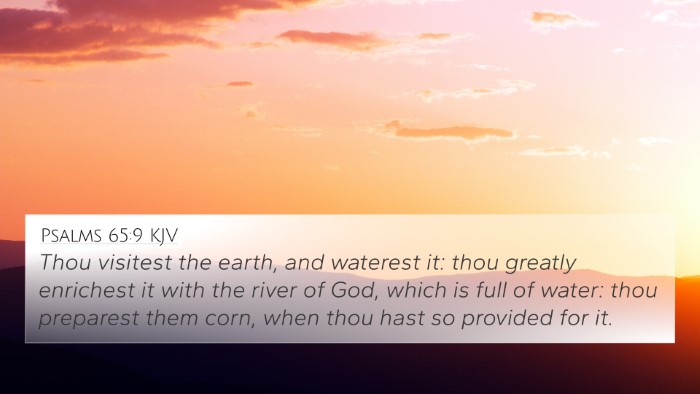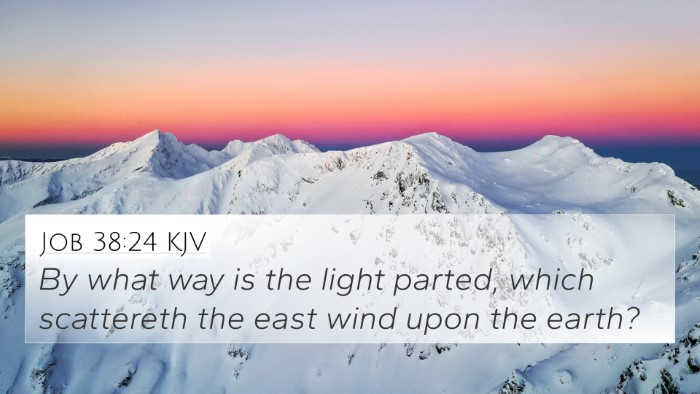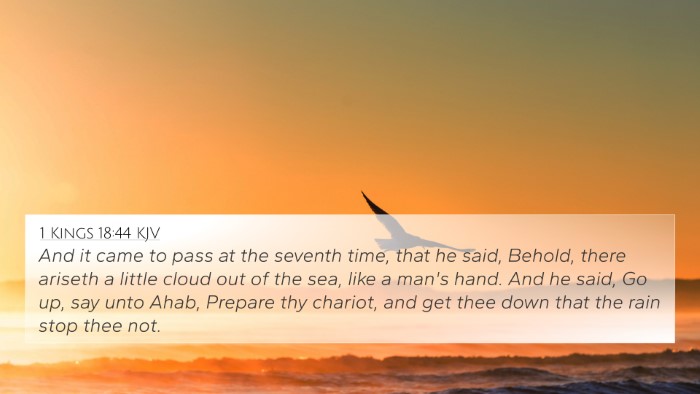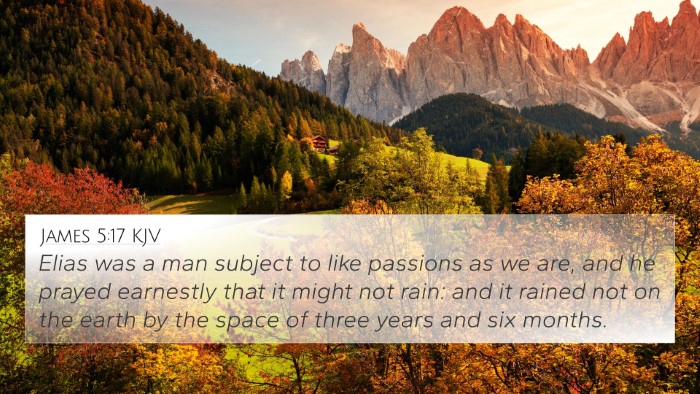Psalms 147:8: Understanding the Verse
Psalms 147:8 states: "Who covereth the heaven with clouds, who prepareth rain for the earth, who maketh grass to grow upon the mountains."
Verse Meaning and Interpretation
This verse encapsulates God's providential care over creation, highlighting His power and authority as the Creator who sustains all life.
Commentary Insights
-
Matthew Henry's Commentary:
Henry emphasizes the majestic nature of God’s control over the natural world. The verse illustrates how God not only created the heavens but also governs the weather, which provides for all creation. His provision of rain is seen as a blessing, essential for life on Earth.
-
Albert Barnes' Notes:
Barnes notes that the imagery of clouds and rain symbolizes God's faithfulness in providing for His creation. The growth of grass upon the mountains signifies His ability to sustain life in even the most barren places, reflecting His omnipotence and care.
-
Adam Clarke's Commentary:
Clarke discusses the poetic nature of the verse and highlights the continuous cycle of creation and sustenance. He comments on the significance of the mountains in their proximity to the heavens, and how God's provision is seen in the flourishing life that results from His actions.
Related Bible Verses
This verse connects with several other scriptures that mirror or complement its themes. Below are some key cross-references:
- Job 37:6: “For he saith to the snow, Be thou on the earth; likewise to the small rain, and to the great rain of his strength.”
- Matthew 5:45: “That ye may be the children of your Father which is in heaven: for he maketh his sun to rise on the evil and on the good, and sendeth rain on the just and on the unjust.”
- Psalms 104:13-14: “He watereth the hills from his chambers: the earth is satisfied with the fruit of thy works. He causeth the grass to grow for the cattle, and herb for the service of man.”
- Isaiah 55:10-11: “For as the rain cometh down, and the snow from heaven, and returneth not thither, but watereth the earth, and maketh it bring forth and bud, that it may give seed to the sower, and bread to the eater: So shall my word be that goeth forth out of my mouth.”
- Jeremiah 14:22: “Are there any among the vanities of the Gentiles that can cause rain? or can the heavens give showers? Art not thou he, O Lord our God? therefore we will wait upon thee: for thou hast made all these things.”
- Luke 12:24: “Consider the ravens: for they neither sow nor reap; which neither have storehouse nor barn; and God feedeth them: how much more are ye better than the fowls?”
- Acts 14:17: “Nevertheless he left not himself without witness, in that he did good, and gave us rain from heaven, and fruitful seasons, filling our hearts with food and gladness.”
Thematic Connections
The overarching theme of God's provision spans throughout the Bible, encouraging believers to trust in His provision and care.
Inter-Biblical Dialogue
In viewing Psalms 147:8 in light of the New Testament, we find a profound relationship between God's creation and His continuous involvement in it. Each of the related verses presents a unique perspective on God's role as sustainer, emphasizing the interconnectedness of the Word and creation.
Tools for Cross-Referencing
For those looking to explore deeper connections within the Bible, various tools can aid in cross-referencing biblical texts:
- Use a Bible concordance to find related verses by keyword.
- Access a Bible cross-reference guide tailored for thematic studies.
- Engage in cross-reference Bible study for detailed analysis of connections.
Conclusion
Psalms 147:8 serves as a reminder of God's majesty and provision. Through the exploration of cross-references, believers can gain a broader understanding of the biblical texts and their interconnections, enriching their study of God's Word.
